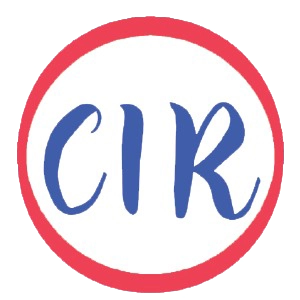“Meta had the resources at its peak to do incredible things. Not just the dollars, but the encouragement to think of the best outcome possible, to make the biggest impact we could.”
By SARAH SCIRE
Among the mass layoffs at the company formerly known as Facebook last week are several roles that have served as a bridge between the news industry and the sprawling tech company.
The Meta Journalism Project Accelerator’s David Grant, a program manager, and Dorrine Mendoza, who led local news partnerships for the platform, were both laid off. Other journalism-adjacent positions eliminated include the head of news partnerships for South East Asia, a program manager for news, two program managers for news integrity, and multiple news communications jobs.
Meta declined to comment on the layoffs or confirm how many of the 11,000 positions eliminated were jobs relating to the news business. It’s unclear what impact the job losses will have on all of Facebook’s various news-related efforts, including the Meta Journalism Project itself. (Meta spokespeople and Campbell Brown, Meta’s vice president of global media partnerships, did not respond to requests for comment on the future of the Meta Journalism Project.)
The layoffs are another step in Meta’s journey to get the heck away from news. Meta, which promised $300 million in support of local journalism back in 2019 when it was still Facebook, has shifted resources away from its News tab, shuttered the Bulletin newsletter program, ended support for Instant Articles, eliminated human-curation in favor of algorithms, and stopped paying U.S. publishers to use their news content.
Instead, the company is focused on competing with rising platforms like TikTok and trying to build a metaverse that people actually want to spend time in. Meta has spent $15 billion so far in its quest to become “a metaverse company” and plans to spend billions more — plummeting stock price and leg-less avatars notwithstanding.
To be sure, the blockbuster investments of the past rarely arrived as checks paid directly to newsrooms. Facebook’s announced $100 million investment in local news at the start of the pandemic, for example, consisted of $25 million in grant funding and $75 million in “marketing spend.” In the early days of the Facebook Journalism Project, the training often focused on training newsrooms to use Facebook products to reach readers or teaching “best practices” for distributing on their own platform. But now, all sorts of funding is drying up — and anyone clicking on the “Grants” page on the Meta Journalism Project’s website will get a 404 error.
Multiple sources said Meta Journalism Project’s Global Accelerator Program — which consists of workshops and hands-on training designed to boost financial sustainability at news organizations — has been presumed dead for awhile now. A press release published two days before the layoffs became official said the accelerator helped 162 American and Canadian news publishers generate more than 166,000 new paying supporters and more than 2 million new registered readers since 2019. Its counterpart in Europe reported 166,000 new paying supporters, too, and nearly 1.5 million new registered users across 90 publishers from 17 countries.
The tech company’s divestment in news will hit some organizations harder than others. Many programs launched with funding from Facebook and/or Meta are funded only through 2024.
At Indiegraf — a network of local news organizations that received several infusions of Meta funds in 2020 and 2021 — the company’s change in direction does not change their work “in any way,” said CEO and co-founder Erin Millar.
“We have always been focused on building a sustainable business model that allows Indiegraf independence from platforms, similar to the news businesses we support,” Millar said. “Meta’s funding support enabled us to accelerate our plans to support independent media, but was never a crucial part of our sustainability.”
Millar said Indiegraf has been aware of the coming changes for months. Indiegraf doesn’t expect current funding arrangements to be revoked — but they’re not counting on any new partnership with Meta once those run their course.
The Meta staffers working on journalism projects “worked hard to use Meta’s resources to make an impact on the news ecosystem while they could,” Millar said. She added, “They also understood that the company’s investments in news were likely finite and temporary, and they were as transparent as they could be with partners like Indiegraf.”
A harder-hit organization will be the Local Media Association, which worked closely with the Meta Journalism Project and was chosen to execute a number of the U.S.-based programs.
Overall, since 2019, LMA has distributed more than $16.8 million to “a few hundred” local media organizations through Meta funding, said Nancy Lane, CEO of LMA.
She outlined the major programs that Facebook-turned-Meta funded through the association:
- The News Accelerator program, including three sessions focused on reader revenue and one on video. Local media organizations received $4.27 million in grants through the sessions.
- A Covid-19 local news relief fund that distributed $12 million to local news organizations in 2020. (“Some would have shut down without this funding,” Lane said.)
- The LMA Local News Resource Center, dedicated to helping local media companies with their social media strategies. Meta’s total investment was more than $800,000 and allowed for a full-time staffer.
- The Crosstown Data Journalism Pilot, which funded a collaboration between a data team at the University of Southern California and news partners WRAL-TV, NOLA.com/The Advocate and WBEZ. The grant, which totaled about $400,000, also funded data journalists in each newsroom.
- The Meta Branded Content Project, operated in partnership with the Local Media Consortium, that helps local media companies create branded content revenue streams. Meta’s investment of more than $3 million funds two full-time positions.
LMA will seek new backers for their Branded Content Project and the LMA Local News Resource Center — both of which Meta will stop funding in 2024.
Lane praised Facebook for being one of the first organizations to invest in business sustainability efforts for local newsrooms and said many grant-giving institutions followed suit. She also had some harsh words on Thursday for people who have criticized the tech company that, frankly, has provided plenty of material for criticism.
Lane told me she thought publishers of color, in particular, would be hurt by the changes at Meta. (“Meta made sure that 50% of their programs were allocated to BIPOC publishers,” she said. I wasn’t able to confirm this number, though at least some Meta programs list half of their participants as Black-owned news organizations.)
“As far as LMA is concerned, more funders than ever before have stepped up recently and they will fill the funding void left by Meta, but nothing will replace the innovative spirit that defined this partnership,” Lane said. “And that is a huge loss for all of us.”
Chris Krewson, executive director of Local Independent Online News (LION) Publishers and the founding editor of Billy Penn, said Facebook left “an enormous mark on the emerging ecosystem of digital-only publishers.”
“There was one call where David Grant asked, ‘If money was not an issue, what would you do?’ And we’d never really thought about it that way, you know?” Krewson said. “Meta had the resources at its peak to do incredible things. Not just the dollars, but the encouragement to think of the best outcome possible, to make the biggest impact we could.”
LION received funding through Facebook’s Covid support programs and the LION-Meta Revenue Growth Fellowship. LION members also participated in the accelerator, which Krewson called “an unquestionable good” for dedicating millions to training for news orgs globally. (The team behind Meta’s Accelerator program has indicated that they hope to continue the work if they can find another funding source.)
Meta’s withdrawal won’t affect LION programs or staffing, but Krewson mentioned something else I’d overlooked. It was extremely helpful to have reliable Meta contacts when a small news organization needed verification or something went wrong with an organization’s page. Something weird happening with a member’s page is “not uncommon,” Krewson noted, but now, all of their contacts are gone.
Has your newsroom received Facebook-turned-Meta funding? Have you worked in a bridge role between the news industry and a tech platform? Will these changes affect you? I’d love to hear from you.
Originally Published on NiemanLab. Link: https://www.niemanlab.org/2022/11/metas-layoffs-make-it-official-facebook-is-ready-to-part-ways-with-the-news/




